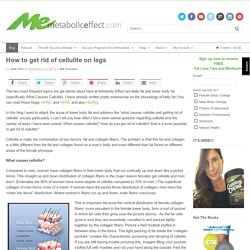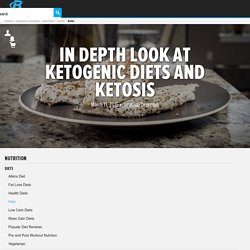

Snack attack: 'Grazing' used to be king, but now experts say it slows metabolism, and can cause tooth decay and diabetes. By Simone Cave Updated: 08:09 GMT, 29 June 2010 For years, nutritionists have been telling us to graze - eat little and often - to keep up our energy levels and as a tactic to avoid overeating unhealthy food.

The problem with grazing is that many people ignore the bit about eating only a little, hearing only the message to 'eat often' - the result is we've become a nation of snackers. Furthermore, we're snacking not on healthy foods, but on chocolate, crisps and other calorie-laden products. All You Need to Know About Carbs on a Low-Carb Ketogenic Diet. When it comes to ideal carbs intake, I've discussed it in my post here: How Many Carbs per Day on Low-Carb Ketogenic Diet?

However, daily carbs intake is not the only aspect you should focus on. Does our body need carbs? It's a common misconception that our body, especially our brain needs carbs. In fact, the brain can either use glucose or ketones. Ask The Macro Manager: Super-Low Carb Or Intermittent Fasting? Low-carb diets seem to be king of the hill at the moment, but I've been hearing a lot about intermittent fasting lately.

Which is a better fat-loss diet? This is a great question. The two approaches are more similar on a biochemical level than most people would think. How to get rid of cellulite on legs. The two most frequent topics we get asked about here at Metabolic Effect are belly fat and lower body fat (specifically What Causes Cellulite).

I have already written pretty extensively on the physiology of belly fat (You can read those blogs HERE, and HERE and also HERE). In this blog I want to attack the issue of lower body fat and address the “what causes cellulite and getting rid of cellulite” issues particularly. I can’t tell you how often I have been asked question regarding cellulite and the variety of ways I have been asked: What causes cellulite? How do you get rid of cellulite? And is it even possible to get rid of cellulite? In Depth Look At Ketogenic Diets And Ketosis. Part 1 | Part 2 What exactly is Ketosis?

The metabolic state of ketosis simply means that the quantity of ketone bodies in the blood have reached higher-than-normal levels. When the body is in a ketogenic state, this means that lipid energy metabolism is intact. The body will start breaking down your own body fat to fuel the body's normal, everyday functions. What's So Great About Being In Ketosis? Keto Calculator - Learn Your Macros on the Ketogenic Diet.